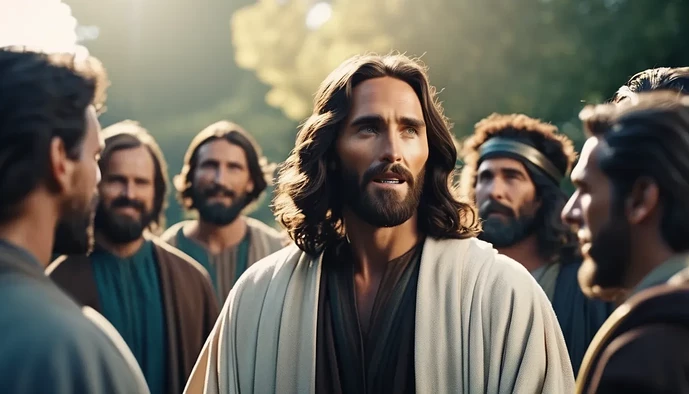The statement Jesus made in John 6:53-56, “Except ye eat the flesh of the Son of man, and drink his blood, ye have no life in you,” has often raised questions about its meaning. However, approaching this with a biblical, Oneness perspective, we see that Jesus was speaking metaphorically, not literally. He often used vivid language and symbolism to convey spiritual truths, and here, He was using “flesh” and “blood” to refer to the necessity of fully accepting and internalizing His life and sacrifice for our salvation.
In John 6:63, Jesus clarifies, “It is the spirit that quickeneth; the flesh profiteth nothing: the words that I speak unto you, they are spirit, and they are life.” Here, Jesus directly points out that His teaching on “eating” and “drinking” was meant spiritually, underscoring that life is found not in literal consumption, but in embracing His words, teachings, and ultimately His sacrifice. Jesus is the Word made flesh (John 1:14), and to “eat” His flesh and “drink” His blood is to receive, believe, and live by the Word, letting His life and sacrifice transform our own.
In the Last Supper, Jesus further illustrates this spiritual communion, offering bread and wine as symbols of His body and blood, saying, “This do in remembrance of me” (Luke 22:19). This act of remembrance calls believers to spiritually partake in the redemption He provided, allowing us to live as new creations in Christ (2 Corinthians 5:17). Thus, in Oneness theology, we affirm that Jesus’ command was a call to spiritual unity with Him, not a literal requirement to eat and drink His physical flesh and blood. This remembrance centers our faith on His once-for-all sacrifice and celebrates His ongoing life in us through the Holy Spirit.
READ this next part very carefully:
Jesus’ teaching on “eating His flesh and drinking His blood” emphasizes the necessity of fully receiving His life and sacrifice for us, but He also warns of the importance of approaching this spiritual act with reverence and purity of heart. When the Apostle Paul writes to the church in 1 Corinthians 11:27-29, he cautions, “Wherefore whosoever shall eat this bread, and drink this cup of the Lord, unworthily, shall be guilty of the body and blood of the Lord. But let a man examine himself, and so let him eat of that bread, and drink of that cup. For he that eateth and drinketh unworthily, eateth and drinketh damnation to himself, not discerning the Lord’s body.”
To partake in the remembrance of Jesus’ body and blood “unworthily” means to come with unrepentant sin or with a lack of sincerity, failing to understand the weight of His sacrifice. Taking communion while harboring unrepented sin is a serious matter—it is a mockery of the grace offered through Jesus’ death, treating His holy sacrifice as common or trivial. Paul’s words remind us that approaching God casually, without self-examination, invites judgment rather than blessing. The sacrament of communion is a holy moment, meant to renew our relationship with Christ and reaffirm our commitment to live in His righteousness.
Therefore, examining our hearts with humility and confessing any sin is essential before partaking. Jesus died to cleanse us, to bring us into unity with Him, and we must approach with a repentant and sincere heart, not only out of reverence for what He has done but also to avoid bringing harm to ourselves. This isn’t about perfection but about coming to the table with an open heart, sincerely honoring Christ’s sacrifice and allowing Him to purify us, so we receive His life in us freely and fully.

